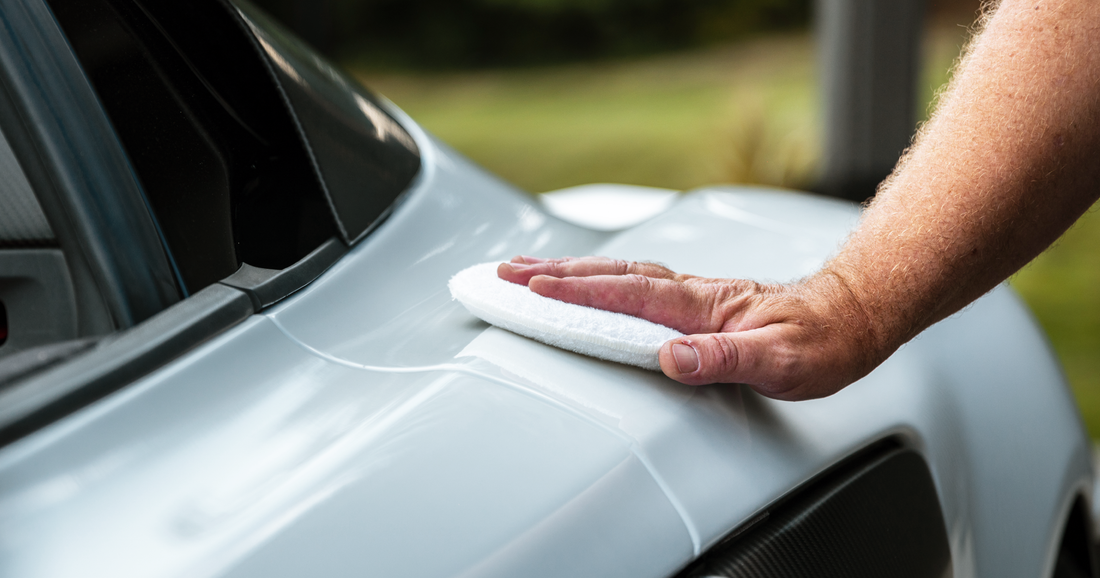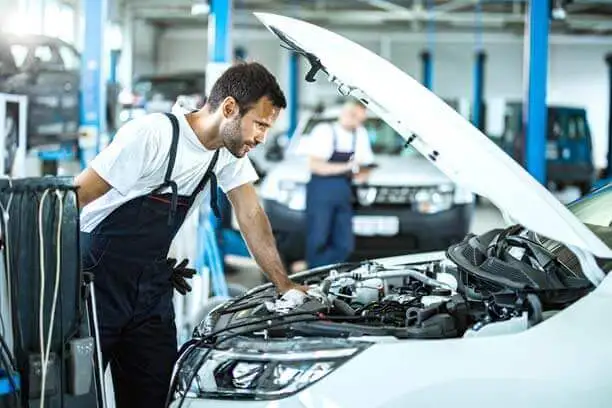All Categories
Featured
When your cars and truck gets too hot, it can feel like a significant emergency, but remaining calm and adhering to the right actions can prevent significant engine damage and help obtain you back on the road safely. In this article, we'll discover what to do if your auto overheats and offer preventative pointers to minimize the risk of overheating in the future.
If Your Auto Overheats,What to Do. Draw Over to a Safe Place The first and essential action if your automobile begins to overheat is to draw over to a risk-free spot asap. Transform on your risk lights and assist your lorry to the shoulder or into a car park whole lot. Keeping your automobile running while it's overheated can cause serious damages to the engine, so it's vital to close the engine off right away.
Let the Engine Cool Once you've securely quit, enable the engine to cool. You should never attempt to open up the radiator cap while the engine is still hot, as the launch of steam or warm coolant can create burns. Wait at the very least 15-20 minutes to enable the engine temperature to drop to a much safer level before proceeding.
![]()
Inspect the Coolant Level After the engine has actually cooled down, inspect the coolant levels by inspecting the reservoir or radiator. Top it off with a blend of coolant and water (as defined by your vehicle's maker) if it's reduced. Always make use of caution when opening up the coolant storage tank, as pressure might have accumulated.
Search For Visible Leaks While you await the engine to cool down, aesthetically inspect the radiator, pipes, and coolant reservoir for any visible leakages or fractures. A leaking radiator or pipe is an usual reason for overheating. It's better to call a tow service than danger driving additionally and triggering extra damages. if you locate a considerable leak.
Restart the Engine After permitting the engine to cool down and making certain the coolant is rounded off, start the engine and keep track of the temperature gauge. If the temperature remains to climb rapidly, it's finest to close the engine off and ask for roadside support or a tow to the local auto mechanic.
![]()
How to avoid Overheating in the Future. Frequently Examine Coolant Levels One of the most convenient methods to stop getting too hot is by preserving the right degree of coolant. In time, coolant can vaporize, so regularly inspect the coolant levels in the storage tank. Reduced coolant degrees can create the engine to get too hot quickly, so top it off as required.
Inspect the Radiator The radiator plays a critical role in maintaining the engine cool. Occasionally examine the radiator for any type of obstructions, dust, or particles that could block air movement. If you observe any type of signs of damage, such as corrosion or leakages, have it repaired or replaced asap.
The thermostat manages the circulation of coolant, while the water pump flows it with the engine. If either component is faulty, it can stop appropriate cooling.
Flush the Cooling System With time, coolant can weaken and end up being ineffective, triggering a build-up of debris in the system. Flushing the air conditioning system every 30,000 miles, or as suggested in your car's manual, assists to eliminate any type of sludge or buildup and guarantees the cooling system is functioning properly.
Screen the Condition of the Tubes The hoses in your lorry's cooling system can wear or crack in time. Evaluate the hose pipes for any type of signs of wear, such as bulging, fractures, or leakages, and change them if required. Preventing coolant leakages can go a long way in staying clear of getting too hot.
![]()
Drive Sensibly Aggressive driving, such as increasing rapidly or driving at broadband, places extra pressure on your engine and its cooling system. Try to drive at moderate rates, particularly on warm days or when driving on steep slopes, to reduce the opportunities of getting too hot.
Avoid Overwhelming Your Vehicle Carrying too much weight in your lorry puts stress and anxiety on the engine and cooling system. Constantly be mindful of your lorry's weight limitation, particularly if you're hauling heavy lots, hauling a trailer, or driving fars away in hot weather.
Conclusion. A getting too hot car can be a frightening experience, however recognizing how to respond and prevent it can save you time, cash, and prospective engine damages. Constantly examine your coolant degrees, inspect essential parts like the radiator, thermostat, and pipes, and adhere to a routine upkeep timetable. By remaining on top of your car's air conditioning system, you can lower the threat of overheating and delight in a smoother, more secure driving experience.
If Your Auto Overheats,What to Do. Draw Over to a Safe Place The first and essential action if your automobile begins to overheat is to draw over to a risk-free spot asap. Transform on your risk lights and assist your lorry to the shoulder or into a car park whole lot. Keeping your automobile running while it's overheated can cause serious damages to the engine, so it's vital to close the engine off right away.
Let the Engine Cool Once you've securely quit, enable the engine to cool. You should never attempt to open up the radiator cap while the engine is still hot, as the launch of steam or warm coolant can create burns. Wait at the very least 15-20 minutes to enable the engine temperature to drop to a much safer level before proceeding.

Inspect the Coolant Level After the engine has actually cooled down, inspect the coolant levels by inspecting the reservoir or radiator. Top it off with a blend of coolant and water (as defined by your vehicle's maker) if it's reduced. Always make use of caution when opening up the coolant storage tank, as pressure might have accumulated.
Search For Visible Leaks While you await the engine to cool down, aesthetically inspect the radiator, pipes, and coolant reservoir for any visible leakages or fractures. A leaking radiator or pipe is an usual reason for overheating. It's better to call a tow service than danger driving additionally and triggering extra damages. if you locate a considerable leak.
Restart the Engine After permitting the engine to cool down and making certain the coolant is rounded off, start the engine and keep track of the temperature gauge. If the temperature remains to climb rapidly, it's finest to close the engine off and ask for roadside support or a tow to the local auto mechanic.

How to avoid Overheating in the Future. Frequently Examine Coolant Levels One of the most convenient methods to stop getting too hot is by preserving the right degree of coolant. In time, coolant can vaporize, so regularly inspect the coolant levels in the storage tank. Reduced coolant degrees can create the engine to get too hot quickly, so top it off as required.
Inspect the Radiator The radiator plays a critical role in maintaining the engine cool. Occasionally examine the radiator for any type of obstructions, dust, or particles that could block air movement. If you observe any type of signs of damage, such as corrosion or leakages, have it repaired or replaced asap.
The thermostat manages the circulation of coolant, while the water pump flows it with the engine. If either component is faulty, it can stop appropriate cooling.
Flush the Cooling System With time, coolant can weaken and end up being ineffective, triggering a build-up of debris in the system. Flushing the air conditioning system every 30,000 miles, or as suggested in your car's manual, assists to eliminate any type of sludge or buildup and guarantees the cooling system is functioning properly.
Screen the Condition of the Tubes The hoses in your lorry's cooling system can wear or crack in time. Evaluate the hose pipes for any type of signs of wear, such as bulging, fractures, or leakages, and change them if required. Preventing coolant leakages can go a long way in staying clear of getting too hot.

Drive Sensibly Aggressive driving, such as increasing rapidly or driving at broadband, places extra pressure on your engine and its cooling system. Try to drive at moderate rates, particularly on warm days or when driving on steep slopes, to reduce the opportunities of getting too hot.
Avoid Overwhelming Your Vehicle Carrying too much weight in your lorry puts stress and anxiety on the engine and cooling system. Constantly be mindful of your lorry's weight limitation, particularly if you're hauling heavy lots, hauling a trailer, or driving fars away in hot weather.
Conclusion. A getting too hot car can be a frightening experience, however recognizing how to respond and prevent it can save you time, cash, and prospective engine damages. Constantly examine your coolant degrees, inspect essential parts like the radiator, thermostat, and pipes, and adhere to a routine upkeep timetable. By remaining on top of your car's air conditioning system, you can lower the threat of overheating and delight in a smoother, more secure driving experience.
Latest Posts
Find Out Why Chicago Drivers Select Montclare Auto Repair for Reliable Service and Significant Savings
Published May 26, 25
1 min read
Uncover Premier Auto Repair Care offered by Montclare Auto Repair – Keep Your Car Running Smoothly
Published May 24, 25
1 min read
Discover Reduce Expenses on Car Maintenance with Montclare Auto Repair’s Limited-Time Deals
Published May 23, 25
1 min read
More
Latest Posts
Find Out Why Chicago Drivers Select Montclare Auto Repair for Reliable Service and Significant Savings
Published May 26, 25
1 min read
Uncover Premier Auto Repair Care offered by Montclare Auto Repair – Keep Your Car Running Smoothly
Published May 24, 25
1 min read
Discover Reduce Expenses on Car Maintenance with Montclare Auto Repair’s Limited-Time Deals
Published May 23, 25
1 min read